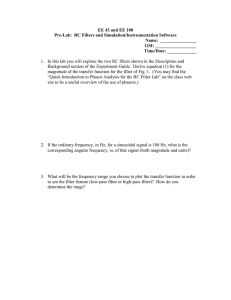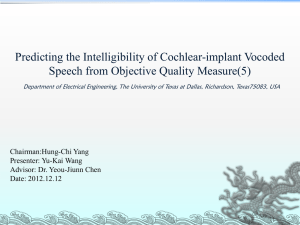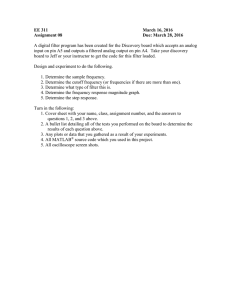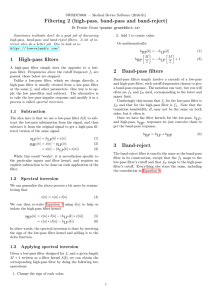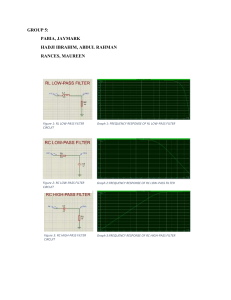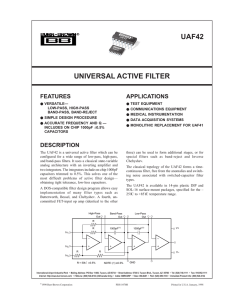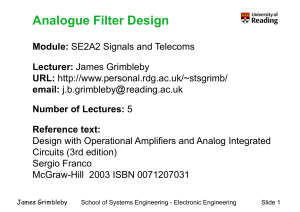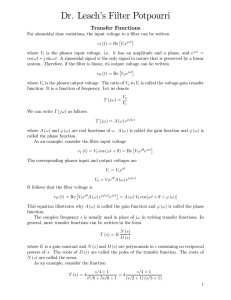Prelab Handout - cyphynets
advertisement
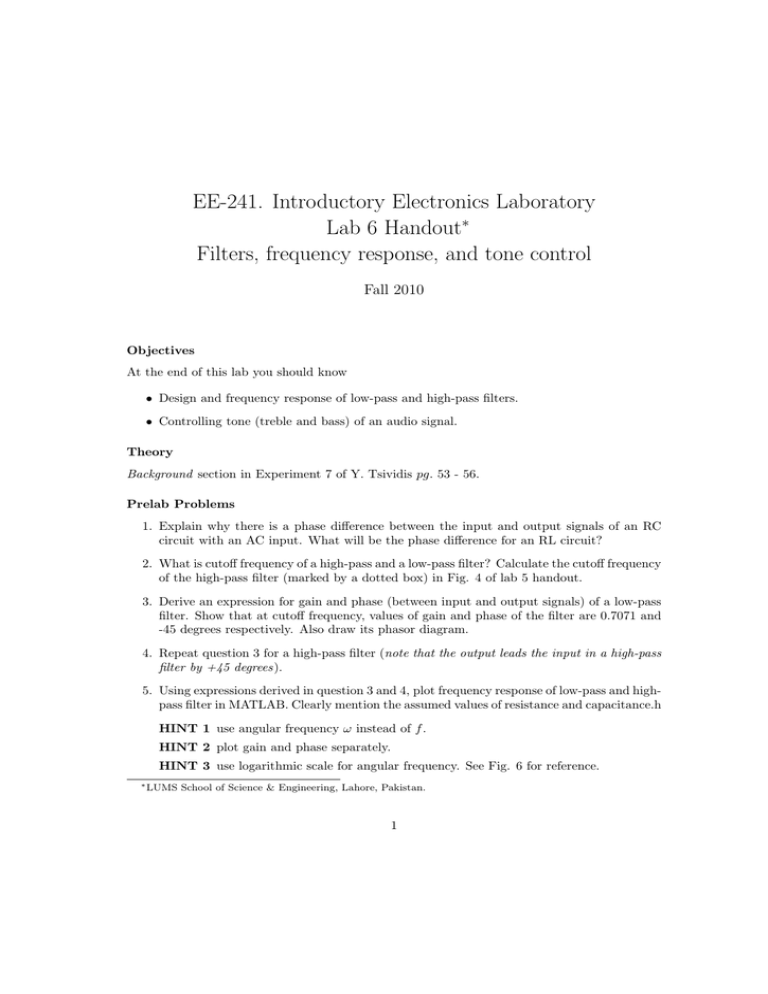
EE-241. Introductory Electronics Laboratory Lab 6 Handout∗ Filters, frequency response, and tone control Fall 2010 Objectives At the end of this lab you should know • Design and frequency response of low-pass and high-pass filters. • Controlling tone (treble and bass) of an audio signal. Theory Background section in Experiment 7 of Y. Tsividis pg. 53 - 56. Prelab Problems 1. Explain why there is a phase difference between the input and output signals of an RC circuit with an AC input. What will be the phase difference for an RL circuit? 2. What is cutoff frequency of a high-pass and a low-pass filter? Calculate the cutoff frequency of the high-pass filter (marked by a dotted box) in Fig. 4 of lab 5 handout. 3. Derive an expression for gain and phase (between input and output signals) of a low-pass filter. Show that at cutoff frequency, values of gain and phase of the filter are 0.7071 and -45 degrees respectively. Also draw its phasor diagram. 4. Repeat question 3 for a high-pass filter (note that the output leads the input in a high-pass filter by +45 degrees). 5. Using expressions derived in question 3 and 4, plot frequency response of low-pass and highpass filter in MATLAB. Clearly mention the assumed values of resistance and capacitance.h HINT 1 use angular frequency ω instead of f . HINT 2 plot gain and phase separately. HINT 3 use logarithmic scale for angular frequency. See Fig. 6 for reference. ∗ LUMS School of Science & Engineering, Lahore, Pakistan. 1 6. The RC circuit in rectifier (see page 69) is also an instance of a filter. Explain how this filter can be useful in a sound system powered by a 60-Hz alternating voltage. 7. To predict the results for your experiment, do all the steps (1-11) on page 57 and 58 on LT-SPICE to calculate the frequency response of low-pass and high-pass filter. Bring a copy of the results (in any form) with you in the lab. Clearly mention the cut-off frequency as well as gain and phase of the filter at cutoff-frequency. 2
